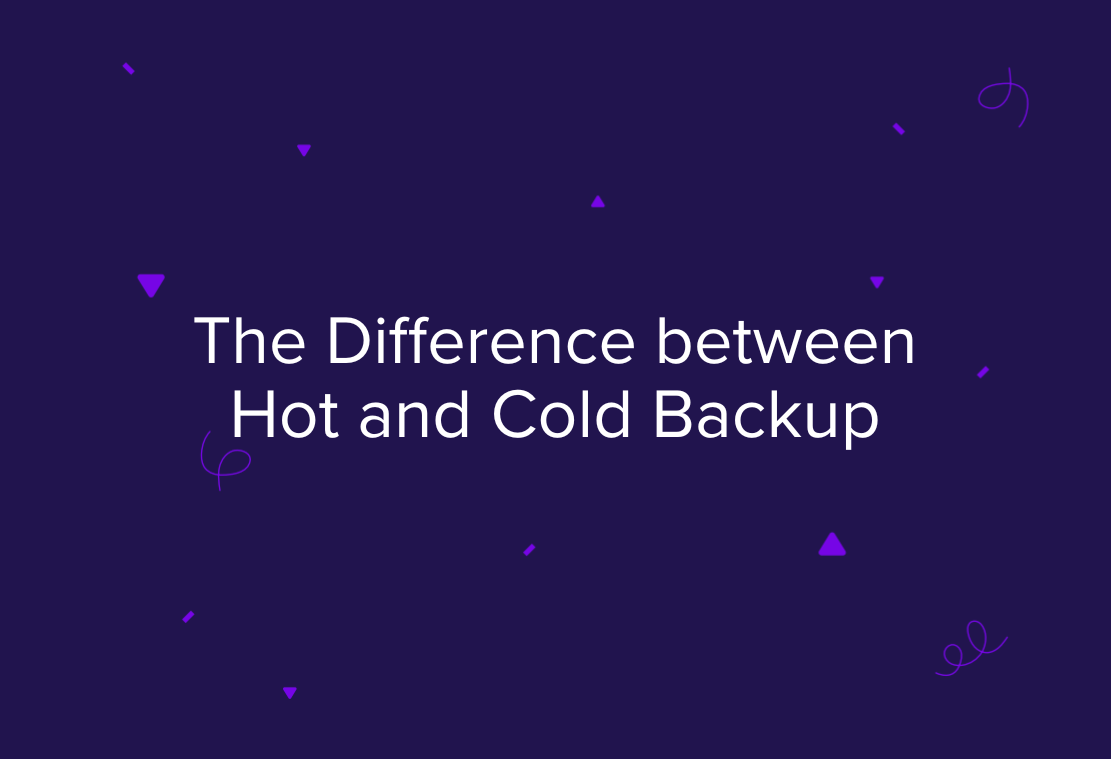In today’s digital landscape, data loss can be catastrophic for businesses. A well-planned backup strategy is essential to ensure business continuity and safeguard critical information. This guide explores the differences between hot, cold, and warm backups, helping you choose the best approach to protect your data.
Understanding Backup Types: Hot, Cold, and Warm Backups
Hot Backup: Minimising Downtime in Live Environments
Hot backups are performed while a system remains active, making them ideal for businesses requiring continuous uptime.
Key Characteristics:
- Backup occurs while users continue working.
- Ideal for 24/7 operational environments.
- Minimises service interruptions.
- Best suited for businesses with low Recovery Time Objectives (RTO).
Pros:
✅ Minimal downtime.
✅ Continuous data protection.
✅ Ideal for mission-critical systems.
Cons:
❌ Risk of data inconsistency.
❌ Performance impact on live systems.
❌ Possibility of capturing incomplete file states.
Cold Backup: The Gold Standard of Data Safety
Cold backups, or offline backups, offer the highest level of security by ensuring data integrity without system interference.
Key Characteristics:
- Performed when systems are completely shut down.
- Guarantees data consistency.
- Maximum protection against cyber threats.
- Ideal for comprehensive data protection strategies.
Pros:
✅ 100% data integrity.
✅ Protection from live viruses and ransomware.
✅ No risk of system conflicts during backup.
Cons:
❌ System unavailability during backup.
❌ Longer recovery times.
❌ Potential operational disruption.
Warm Backup: The Middle Ground Solution
Warm backups provide a balanced approach between hot and cold backups.
Key Characteristics:
- Performed while servers remain operational but are not actively in use.
- Periodic updates and backup synchronisation.
- Commonly used for backup mirroring and replication.
Pros:
✅ Faster recovery than cold backups.
✅ Reduced performance impact compared to hot backups.
✅ Suitable for businesses needing redundancy.
Cons:
❌ Not as fast as hot backups.
❌ Not as secure as cold backups.
Choosing the Right Backup Strategy
When selecting a backup method, consider the following:
- Recovery Time Objective (RTO) – How quickly do you need data restored?
- System Criticality – How important is uptime for your business?
- Operational Requirements – Do you need backups without downtime?
- Data Sensitivity – How valuable or confidential is your data?
- Compliance Regulations – Are you required to meet industry data protection laws?
Recommended Backup Approach:
Many organisations use a hybrid backup strategy:
- Hot backups during active business hours for real-time protection.
- Cold backups during off-peak times (nights or weekends) for maximum security.
- Warm backups for redundancy and failover protection.
Best Practices for Backup Implementation
To ensure your backup strategy is effective, follow these best practices:
✅ Regular Testing: Frequently test your backup and recovery processes.
✅ Multiple Backup Copies: Keep redundant copies stored in different locations.
✅ Off-Site & Cloud Backups: Protect against hardware failures or cyber threats.
✅ Automated Scheduling: Reduce human errors with scheduled backups.
✅ Data Encryption: Secure sensitive information to prevent breaches.
✅ Performance Monitoring: Ensure backup processes run smoothly without failures.
Comparison Table: Hot vs Cold vs Warm Backup
| Feature | Hot Backup | Warm Backup | Cold Backup |
| System Availability | Always Online | Partially Online | Completely Offline |
| Recovery Speed | Fastest | Moderate | Slow |
| Data Integrity | May Have Inconsistencies | Balanced | 100% Consistent |
| Security from Cyber Threats | Moderate | Good | Best |
| Best Use Case | Mission-Critical Operations | Redundancy & Failover | Maximum Security |
Conclusion: Your Data, Your Protection
No single backup method fits all business scenarios. A flexible, multi-layered backup strategy is key to ensuring business continuity and protecting critical data. By understanding the strengths and limitations of hot, cold, and warm backups, you can tailor a solution that best suits your operational needs.
Need Expert Backup Consultation?
Our data protection specialists can help design a customised backup strategy tailored to your business needs. Contact Us for a Free Consultation today!

